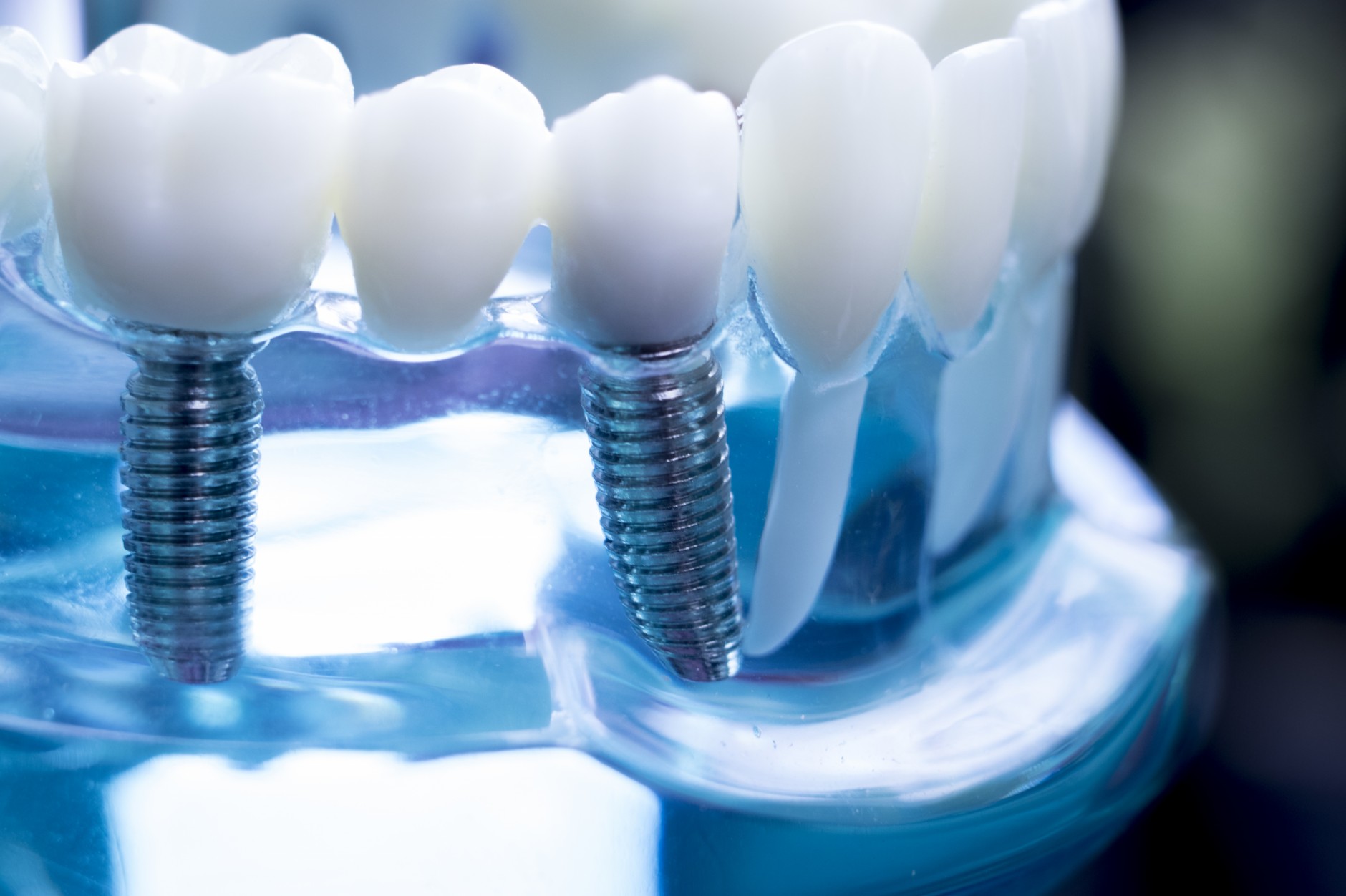Implantology
back to overview
What is a dental implant?
A dental implant is an artificial tooth root made of a biocompatible material, usually consisting of titanium. Titanium is tissue-friendly and due to its physical and chemical properties does not cause rejection or incompatibility reactions (allergies). The implant is permanently anchored in the jawbone and carries a pillar to which the visible dental crown is attached.
Who can benefit from a dental implant?
After loss of a single tooth (e.g. due to an accident) implants are a reasonable alternative to dental bridges. Using a dental bridge the teeth adjacent to the gap have to be ground down, which is not necessary using an implant.
Dental implants are particularly suitable for patients with partially edentulous or edentulous jaws, especially when an existing dental prosthesis no longer has a good hold. To improve this situation, at least two implants are anchored in the jawbone.
Due to tongue movements during chewing and speaking and lack of prosthesis support, problems occur more often with total prosthesis of the lower than the upper jaw. Therefore, implants are often placed in the lower jaw. Implants are the most effective and quickest measure to improve chewing function.
How does the implantation work?
Under local anaesthesia the gingiva is opened. Then a thread is drilled into the jaw bone and the artificial root is inserted. Finally, the gum above the implant is sutured again.
After two to six months the implant is firmly attached to the bone. The healing process is closely followed by the dentist.
After the healing phase the dental prosthesis can be placed on the implant. The implant will then be just as robust as your own teeth.
Where are the limitations of Implantology?
A certain amount of bone is needed to fix the implant to the jaw. Various systems allow for a solution in almost every situation. Sometimes it may be necessary to augment the jaw bone by using natural alternatives or membranes.
Certain health conditions, poor conditions of the gums or other specific circumstances may limit an implantation. In order to avoid complications and ensure preservation of the implant, thorough oral hygiene and prophylaxis are essential.
